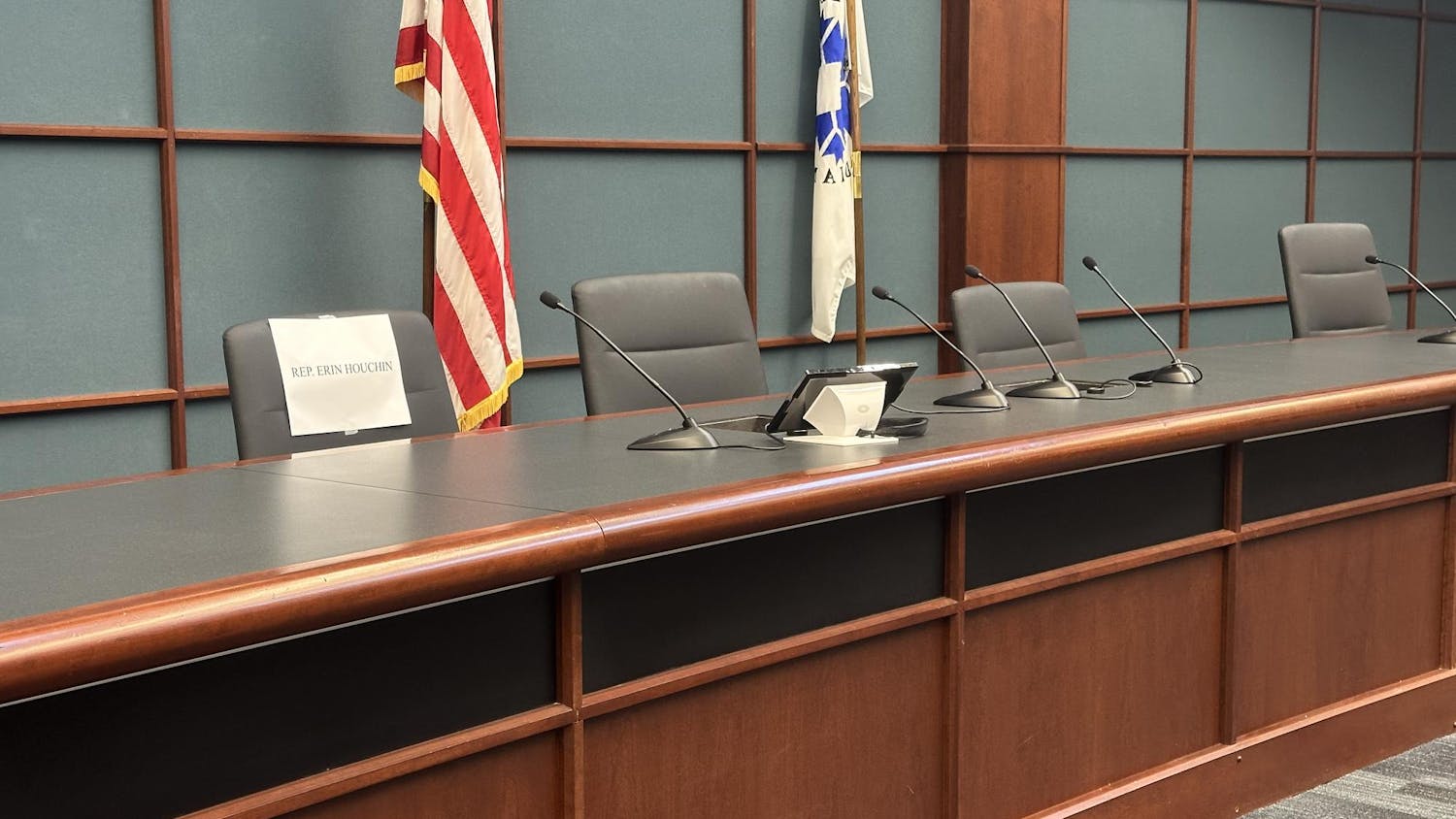After a drum major in the Plainfield High School marching band was charged with two counts of rape in September, student journalists in the school’s publications class approached administrators about covering the story.
They were told they could not write about the allegations, so the students tried to offer a compromise: an issue about rape culture in general. Again, they were told no.
“The community needs to know about this incident,” Plainfield High School senior Kyra Howard said.
Ryan Gunterman, executive director of the Indiana High School Press Association, said this is the definition of censorship.
Plainfield Community School Corporation spokeswoman Sabrina Kapp said she did not have knowledge of the students’ request to cover the story.
Student journalists at Plainfield faced censorship in October 2017 after publishing a controversial issue of the publications class’ newsmagazine. Kapp said backlash from “Plainfield High School’s Dating Survival Guide: Declassified" prompted school officials to examine the publication with greater scrutiny.
The Plainfield Community School Corporation school board decided in a closed-door meeting last spring to eliminate a $5 student fee which had funded the school’s publications for years.
Kapp said the funding changes have nothing to do with the content in the dating guide.
The cut funding was never provided directly by the school, Kapp said. Historically, a $5 fee charged to every student provided the newsmagazine staff about $6,500 to publish 11 issues throughout the academic year.
Administrators realized forcing students to pay a $5 fee for something they did not necessarily want fell outside state audit standards, Kapp said.
“It was considered similar to charging everybody for an athletics pass when you know not everybody wants to go to all the athletic events,” Kapp said.
Kapp said Michelle Burress, the publications teacher, was informed in the spring. Students refute this and said Burress was first informed Aug. 1, when she asked the treasurer for an update on the account.
In the past, the student fee has allowed the publications class to print about 2,000 copies — enough to distribute the newsmagazine to the entire student body and staff, Howard said. Now, students print about 200 copies exclusively for people who have purchased a $10 subscription.
Staff typically sell advertisements, organize an annual garage sale and have a couple other fundraisers to supplement funding from the student fees. But this year has been especially intense.
“We have to make sure we have the money to print,” Howard said.
Howard and her partner have raised about $5,400. Parents have started a booster club to coordinate restaurant nights and other fundraisers to support the journalism program.
Rich Trivett, whose daughter is on the newsmagazine staff, said he has made at least seven requests to school officials about having a public meeting to discuss censorship and funding changes. He was rejected every time.
Trivett said he has spoken to several other parents with the same concerns, but others are afraid to come forward.
Since the dating guide issue ran, students have been required to have content reviewed by the principal prior to publication. While prior review is legal, Gunterman said the administration has also practiced prior restraint, changing the content of students’ work.
Under the court ruling Hazelwood v. Kuhlmeier, a high school administration can practice prior restraint when the content sacrifices the school’s educational mission. Gunterman said Plainfield High School’s use of prior restraint is questionable, at best.
Their changes are not based on facts, nor journalistic errors. They are editorial decisions made by people who do not have experience in journalism, Gunterman said.
Howard said the staff has had to be careful. They don’t want more problems with publishing or privileges like field trips taken away.
“We don’t want there to be more repercussions because we tried to stand up for ourselves,” Howard said.
Gunterman said students must sue if they want to see a change. Otherwise, they need to rely on public pressure or a complete turnover in the school board.
Trivett is considering filing a lawsuit for violation of the First Amendment and Indiana’s Open Door Laws. It seems to him that litigation is his last resort to bring the issue to the public.
Earlier this year, House Bill 1016, an Indiana bill which would have protected high school students from censorship, failed to pass.
Howard is independently pursuing the rape trial, which is set for February. She plans to publish in the local newspaper, the Hendricks County Flyer.
Clarification: A previous version of this story did not specify that prior restraint is only legal when the content sacrifices the school's educational mission.






